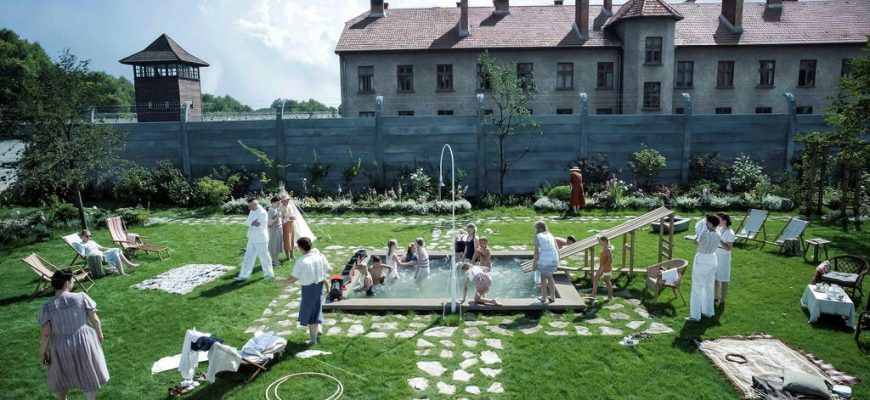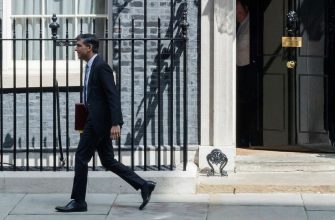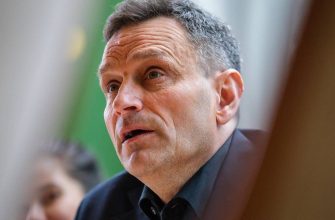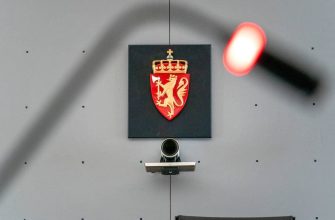It doesn’t take many minutes into the “Zone of interest†before I realize that this is not my kind of film. But it is obviously many others’.
The story, or what to call it, rests heavily on the breathtaking contrast between Auschwitz commandant Rudolf Höss’ prudent villa life outside the camp walls and the inferno on the other side, where he spends his working days administering the genocide .
At least we’re expected to think it’s breathtaking. But why is it so difficult that Höss is tending geraniums one moment and signing Zyklon B deliveries the next? All of Europe was tending its geraniums, following the football scores and urging the children to do their math homework. And we still do. That’s how we are made, for better or for worse.
We are lulled into the idea that the Nazis are not really like us
The Holocaust was made possible through a purposeful indoctrination that was spread in layer after layer on top of the anti-Semitism that was already simmering everywhere, including in Sweden. The Jews were not quite like us. And after the Nazis took power, Jew-hatred was woven into all social barriers and tensions. A street sweeper could suddenly see himself as more like a professor, because he belonged to the right “race†.
In “Zone of interest†we are lulled into the idea that it is the Nazis who are not really like us, and that we ourselves could never put on blinders as big as the family Höss.
But of course we could. Of course we already do. Every day we harden in our conviction that there are people who are not quite like us.
What provokes me most about “Zone of interest†is perhaps that it is so stylish, so smart, so arty. It feels as if it is striding forward in a frock coat through the piles of corpses on its way to the Oscars, with its eyes on the podium. But when we leave the movie theater in the safe and life-threatening certainty that the Nazis weren’t really like us, then we haven’t learned anything, and the high-pitched assurances if “never again†is zero and worth nothing.
There have been many films at this point that approach Genesis in a way that is just neat, smart and arty, like “Schindler’s List†– how good and hideous as it was – or they have also latched on to a peripheral phenomenon – an orchestra, a clown, a piano.
There seems to be a tacit agreement that everyday life in the concentration camps was far too grotesque and repulsive to portray. That it would be tasteless, something of an assault on the victims to try to depict in a feature film how it really was – the lie about the disinfection, the moment when the doors close behind all the naked, terrified people. And the hissing from the roof when the gas flows out.
This is not an unqualified suggestion, but an open question. I really want to know.
Why must the Genesis depicted from the side, let the big be sensed in the small, why is it considered more tasteful and considerate to do it with a nice photo and Ralph Fiennes in the watchtower?
None of the victims in the concentration camps could look away during the lineups in the winter cold, no qualified photographer turned his camera respectfully towards the evening sky.
Anyone who wants to get an unvarnished insight into Rudolf Höss’s mind should read his memoirs “Commandant in Auschwitz†. There we meet a man wallowing in self-pity, complaining about the bureaucratic bottlenecks in Berlin and resenting the Jews’ lack of hygiene the country.
All I feel is that my feet hurt
Niclas Sennerteg has also collected the interviews with Höss in “All I feel is that my feet hurt†, which was Höss’s unexpected response to the prosecutor’s questions “What do you think about what you have done? Do you suffer from emotional anxiety?†.
Sennerteg describes how frequently the camp was visited by industrial pampas who were delighted at the prospect of gaining access to free labor forced to toil in the munitions factories until they dropped.
Each of us still has the ability to make ourselves however blind, to whatever horrors, either because we have to or because it’s convenient mast so. And anti-Semitism continues to sprout unabated, stated or unstated, in a Facebook group near you.
Bengt Ohlsson lives in Stockholm. He was born in Östersund and has participated in DN since 1984. He was awarded the August Prize in 2004 for his book “Gregorius†. His latest novel, “Feed to my revenge†, was published in October 2022.
Here you can read more articles by Bengt Ohlsson.








